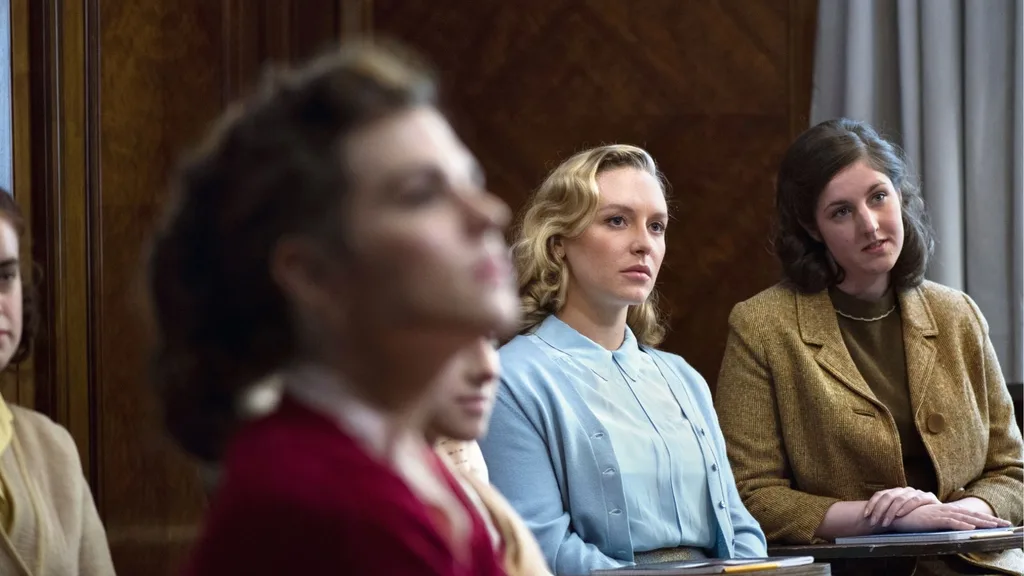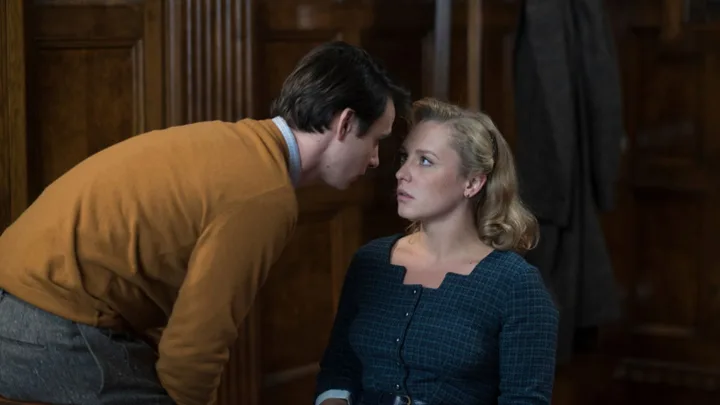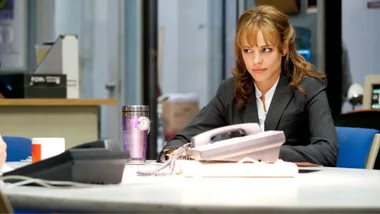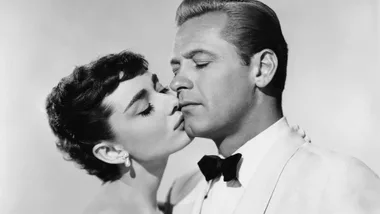Male-professor-female student relationships are ripe for scandal, scrutiny, drama, moralising. But, as writer Madison Griffiths reflects in her latest book, Sweet Nothings, the professor-student relationship can be far more nuanced and complicated that we’ve been led to believe.
At 19, I etch my university tutor’s name into my diary: Peter. It is 2014, and I think about him often, rehearsing how I’d react if – God forbid! – he asked to see me after class. I am credulous and hopeful, imagining what I’d tell my boyfriend if I discovered, lodged into an assignment’s feedback, an invitation for a drink.
Two years later, newly single, I adjust my skirt while sitting across from Peter* in a bar, nervous. A year after that, he and I sign a lease together. It is all so sleek, until it isn’t. Eventually, we grow apart. Once this happens, he enlists my counsel – my expertise – insisting I help him make sense of the classroom hieroglyphs of love, sex and ethics after having slept with another former student.
By the time the third student-turned-lover comes around, I am 30 and nursing a nameless betrayal, the kind that demands its own thesis. Was I an unwitting kink in another man’s repertoire? Who was I, if not a member of some terrible stockpile of precocious young women? An academic’s plaything? Universities around the world have long floundered when deciding how best to police consensual relationships between faculty members and their students, if at all.
In 2010, Yale introduced a blanket ban, with faculty members prohibited from entering into sexual relationships with any Yale undergraduate student, least of all their own. Once upon a time, such initiatives were met with significant outcry.
How infantilising, many feminists argued, insisting female students were adult enough to manoeuvre the murky labyrinth of consent on their own shaky terms, be it in the classroom or otherwise. Why feminists felt it necessary to weigh in on such a dilemma was, in and of itself, worthy of an eye roll.
This is because – irrefutably – the students in question were women and the professors and tutors men. Gender was to be the impervious combat zone upon which these relationships often played out, making their battle wounds all the more intricate. Possibly, it is this – how obviously gendered these relationships are – that has left me so dirtied.
Had my womanhood, for all its worth, been fumbled with? It were as if it had fallen squarely into the hands of some ham-fisted institution, only to be mishandled. Scholar Amia Srinivasan, author of The Right to Sex, explains it better when she writes in her essay “Sex as a Pedagogical Failure” that “such relationships often feed on, and reinforce, women’s second class standing in higher education”.
She goes so far as to state that “these relationships can thwart the legal right of women students … to exist in the university on equal terms with their male counterparts”. In another world, I may have come to know of the women Peter procured relationships with elsewhere: be it having seen them speak at conferences, or having read their authored papers, or even joined them for a whinge at knock-offs about the trials of teaching ourselves.

I may have imagined them instead outside of the boundary lines of Peter’s wobbly embrace, if given the chance. Late into the evening, I let my eyes rove over the spaces between the words on my old university’s website, the ones regarding staff-student relationships.
What am I looking for, exactly? Proof of what? Listed are six examples of inappropriate conduct, and while all seem egregious, none here – when it comes, at least, to describing Peter and myself – feel particularly right, particularly honest. It is not difficult to imagine an inappropriate supervisor who touches the leg and shoulder of a student or makes small talk of a sexual nature.
It is difficult to imagine Peter as such. It isn’t difficult, though, to imagine him hunched forward in a fit of laughter, as I endeavour to neaten his hairline with an electric razor, as I did every six weeks or so. It isn’t difficult, even, to imagine him sitting squarely on a stool sometime past 1am, by an arcade machine, in a dingy bar with a former student. To imagine him there and then, the first time he placed his hand on my upper thigh.
To imagine me letting it rest, before reaching for it myself. Before squeezing. During one of my last conversations with Peter, he tried to explain how he got here. Here, as in, in bed with another student. He had me conjure up a familiar image, even had me taste the pure salt of it all. I listened carefully as he pleaded: something about how badly he wishes he had met her, the third, outside of the academy.
While cushioned by Peter’s love, I was able to weigh up the costs of our relationship, and – for a couple of years – there seemed to be none. Our days together were monotonous in all the ways they ought to have been, rounded out by dog walks, grocery runs, snooze buttons. I wasn’t Peter’s student, then. I hadn’t been for some time. I was his girlfriend. This, of course, made me the exception to the rule.
The anomaly in a boring, old book of truisms: too smart, too beautiful, too astute to be the dewy-eyed pupil who stared a moment too long in the direction of her teacher, just someone who – as if in wrong place at the wrong time – met her intellectual equal in costume, in make-believe.
If it didn’t happen again, which it wouldn’t, we’d be able to throw our heads back, have a giggle, and – in due time –peel ourselves from the stitching of our pedagogical garb. It is 4.32am, and Srinivasan is reciting to me a familiar tale in her book, The Right to Sex. “Imagine a professor,” she begins. “Who happily accepts the infatuated attentions of his student, takes her out on dates, has sex with her, makes her his girlfriend, perhaps as he has done with many students before.”
I am sitting, propped up on my couch, as my dog whimpers beside me in his sleep. The occasional twitch of his legs interrupts my thoughts. His own shaggy confessionals proof he is dreaming. I scroll through an exhaustive anthology of Facebook messages between Peter and me, all the way to the top, where I discover it: the first bite. I remember where I was when I sent Peter that message, tucked into a blanket in the curve of my parents’ couch, so eager and girlish. Hardly scorned. Hi Peter, it reads.

This may be totally left-ofcentre, so please feel free to disregard it entirely, but would you be keen to potentially get a drink, or a coffee, or a bunch of caramels sometime?
I’m not sure what it is about my mention of caramels that makes me sad – so sincere, so darling! – but I think it has something to do with who I was then, how young I seemed, how I’d watched Good Will Hunting in the home I grew up in, remembered Matt Damon’s smug mention of caramels as he was being courted by a woman nearly as intelligent as him, but not quite, and wondered what it would be like to be with the smartest man in the world. Proof, of course, I was dreaming.
Srinivasan continues: “The student has consented, and not out of fear. Are we really prepared to say that there is nothing troubling here? But if there is something troubling, and the problem isn’t the lack of consent, then what is it?” Perhaps what’s troubling about all of this is how it is felt. I’ve discovered here that familiar, innate canniness all women feel if – and when – they are reduced to their gender. It is hardly quaint. It arrives, as if a puritanical slap in the face, tsking pitifully.
It lived between the spaces of each #MeToo tweet in 2017, and – closer to home – in my direct messages after I’d posted online that I’d like speak to others who have had relationships with, or just slept with, their professor or tutor. I didn’t specify women, and yet it was only women who came forward in droves. Is it unreasonable to expect university classrooms be free from prejudice? Is it not exactly where women go to imagine themselves as scholars, not merely a scholar’s arm candy?
When I reflect on my studentship, I am bestowed instead the unsteady outline of a heterosexist cliché I don’t stand by, but once did. Right? Or should I say, once had to? I have, in due time, become the rule. This is because here, it seems, there are no exceptions. I just didn’t know that then.
This is an edited extract from Sweet Nothings, by Madison Griffiths (Ultimo Press, $36.99) out July 1.
Related articles:
- Is It Love, Lust Or Limerence? When It’s (Not) Just A Crush
- “I Trial Male Escorts To See If They’re Up For The Job”
- The Tell Tale Signs Of A Love Addict









